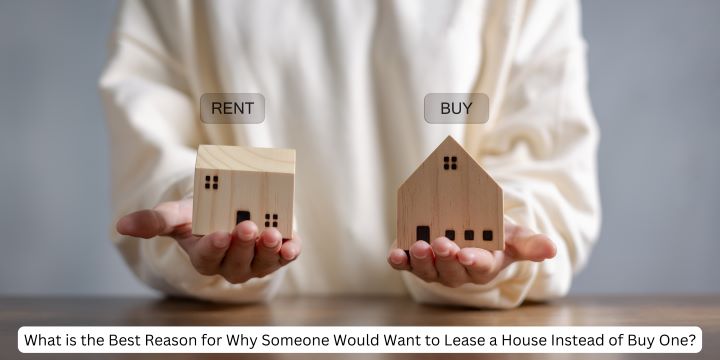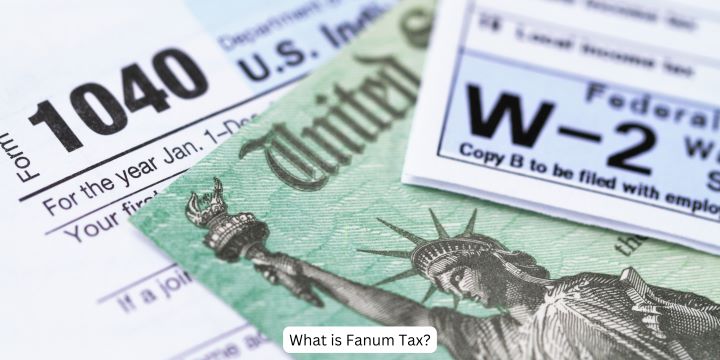When it comes to choosing between leasing a house and buying one, the decision can be complex and depends heavily on individual circumstances. Leasing offers flexibility, lower upfront costs, and less long-term commitment, which makes it an attractive option for many people. The best reason someone might choose to lease a house instead of buying comes down to financial flexibility and reduced risk.
1. Financial Flexibility and Lower Upfront Costs
Leasing a home often requires significantly less money upfront than buying. With a lease, renters typically pay a security deposit and the first month’s rent. In contrast, buying a house can require a hefty down payment, usually between 10-20% of the home’s value, plus closing costs, property taxes, and homeowner’s insurance. If someone wants to maintain financial flexibility or avoid liquidating savings, leasing becomes a more appealing option.
- Smaller Initial Investment: For individuals who do not have significant savings for a down payment, leasing provides an immediate housing solution without the need for large upfront capital.
- Budget Management: Renters don’t have to worry about fluctuating interest rates, property taxes, or unexpected maintenance costs. Rent payments are typically fixed for the duration of the lease, which helps with budgeting.
2. Freedom and Flexibility
Leasing provides flexibility that homeownership often cannot match. In a world where relocation due to career changes, personal preferences, or family dynamics is common, renting offers an easier exit strategy.
- No Long-Term Commitment: For those who are not ready for long-term commitment to one location or property, renting allows greater freedom. If your job or lifestyle requires frequent relocations, the ability to move easily at the end of a lease is invaluable.
- Try Before You Buy: Renting can be an excellent way to get a feel for a neighborhood, home size, or area without the pressure of committing to a purchase. It offers the chance to explore different living environments before settling down permanently.
3. Avoiding Maintenance and Repair Costs
Homeownership comes with the responsibility of maintaining the property. From minor repairs like fixing a leaky faucet to major overhauls such as replacing a roof, these expenses can add up quickly. When leasing, these costs are usually covered by the landlord or property management company, leaving the renter with fewer financial headaches.
- No Unexpected Expenses: With a lease, renters don’t need to worry about unplanned repair costs. The landlord typically handles all major repairs, such as broken appliances, structural issues, and plumbing problems.
- Less Stress: Not having to maintain a property means more free time and less stress for the renter, allowing them to enjoy their living space without added burdens.
4. Avoiding Market Risk
The housing market can be unpredictable. When buying a home, individuals are subject to market fluctuations, and if home values drop, they could end up with negative equity. Leasing avoids this risk entirely.
- No Depreciation Risk: Renters do not have to worry about their home losing value. The responsibility of property depreciation falls on the homeowner, allowing renters to stay insulated from market volatility.
- Protection Against Housing Market Crashes: In times of economic uncertainty or declining housing markets, renting provides a safeguard. Renters are not tied to a mortgage that might exceed the value of the home if the market takes a downturn.
5. Access to High-Quality Amenities
Many rental properties, especially in apartment communities or high-end leased homes, come with a range of amenities that homeowners might not be able to afford immediately.
- Conveniences at No Extra Cost: Pool, fitness centers, parks, or concierge services are often included in rental agreements, adding value without extra costs.
- Maintenance-Free Living: These amenities are maintained by the property owner, saving renters both time and money while still enjoying top-notch living conditions.
6. Easier Financial Planning
When leasing, the financial obligations are clear-cut. There are no surprises in terms of mortgage payments, property taxes, insurance premiums, or large-scale repair expenses. Leasing makes financial planning simpler, as monthly expenses remain consistent.
- Predictable Monthly Costs: Rent payments are stable throughout the lease term, allowing renters to plan and budget with ease.
- No Hidden Costs: Unlike homeownership, where unexpected expenses like a broken furnace can arise, renting offers peace of mind through predictable monthly obligations.
Conclusion: Is Leasing Right for You?
For individuals seeking financial flexibility, less responsibility for maintenance, and the freedom to move without the constraints of homeownership, leasing a house is a smart option. The best reason to lease rather than buy often boils down to lower financial risk and more flexibility. This allows individuals to focus on their current lifestyle and financial situation without the long-term commitment or risks associated with owning a home.
Renting gives people the chance to enjoy high-quality housing, explore different neighborhoods, and maintain flexibility for future life changes—all without the burdens of ownership. If you prioritize flexibility, predictable costs, and less responsibility, leasing may be the best choice for your housing needs.




